





A Walk Through The Colorado Criminal Justice System – Part II – Trial and Post Trial
Introduction – The Colorado Criminal Justice System is very confusing and frightening to most people who are charged with criminal acts. This web page – Part II – is intended to help lessen those fears.
Trials: Jury Trials and Court Trials
If the case cannot be resolved by dismissal or a change of plea, it must be tried. Only a small percentage of cases are tried given the large volume of criminal cases,
The vast majority of criminal cases are resolved by a defendant deciding to change his or her plea of guilty or no contest even a small percentage translates into a sufficient number of trials to keep trial courts busy trying cases on a routine basis.
A defendant in a felony criminal case is entitled to a trial before a jury of 12 persons, 6 for a misdemeanor.
Bench – or Judge Trials in Colorado
Sometimes, although not often, a defendant decides for tactical reasons to waive his or her right to a jury trial and permit the judge to render the verdict. A trial over which the judge presides and renders the verdict is called a “court trial” or “bench trial.”One of the reasons why a defendant might prefer a court trial are: the defendant has a lengthy record, and might perceive that a judge will more carefully weigh that record in judging the defendant’s credibility than a jury might if it comes into evidence if the defendant takes the stand.. A second reason might be the subject matter of the case – child pornography or child abuse as examples.
Or the defendant’s other conduct, whether lawful or not, might seem shocking or offensive or engender less sympathy in the average juror than it would in a judge experienced in criminal casework. Or the evidence might cast the defendant or important witnesses in certain stereotypes to which a judge, again given deeper familiarity with criminal cases, may be immune. Or the defense strategy might depend on a more particularized or a novel application of the law to the facts. Or a defendant might not have to pay as much to his or her lawyer for a bench trial. There are other reasons as well.
Colorado Trials: Jury Selection – How Juries Are Picked
The jury is selected from a panel of prospective jurors. The panel is selected randomly from a jury pool which, in turn, has been selected randomly from a jury list compiled from voting records, drivers license records, and similar sources. The size of the panel is determined by the judge, and usually contains just enough prospective jurors so that if any jurors are dismissed for cause there will still be enough jurors to choose from after “peremptory strikes” (also known as “peremptory challenges” are used.
During jury selection, the judge and the lawyers question prospective jurors to determine if any should be excused because they cannot be open-minded and fairminded about the case, for example, because they may know persons involved in the case or have opinions or experiences that would make them less than impartial. Such persons may be dismissed “for cause.” After any jurors have been dismissed for cause, the parties are allowed to take turns, using peremptory strikes, removing a predetermined number of names from the jury panel.
The number of strikes depends on the offense, the number of parties, and the number of alternate jurors on the panel. The parties alternate striking jurors until the required number of jurors remain at least 12, plus any alternates a judge might require (alternates are a precaution against having too few jurors to complete the case in the event a juror might become ill or unavailable during the trial).
No Reason Need Be Given For Peremptory Strikes In Colorado
The lawyers need not give a reason for their peremptory strikes. (However, if a party suspects that the other party has used its peremptory strikes solely on the basis of race, gender, or age, the party may be required, under the Batson case, to offer a reason independent of such considerations for its strikes.
Sometimes judges and lawyers question potential jurors individually in the judge’s chambers, to afford a juror privacy about a sensitive matter, or to prevent other prospective jurors from hearing what a particular juror has to say.
In some cases, a judge might decide that the safety of the jurors or the independence of their deliberations might be compromised if their identities were made public. Ordering anonymous juries is a way to reassure jurors of their safety and to inoculate their deliberations and their verdict from the distraction and undue influence that might occur in a high profile case. Anonymous juries have been approved in certain cases in Colorado; however, the practice remains controversial and it is currently being reviewed by the U.S. Supreme Court.
What if the jurors know too much about the case?
A common myth about jury selection is that lawyers and judges seek to rid juries of jurors who are too smart or know anything at all about the law, the parties, or the place where the crime is alleged to have occurred. In fact, knowledge of such things does not automatically disqualify a juror as long as the judge is satisfied that the juror is sincerely impartial about the case and will decide the case strictly on the evidence and not on uncommon knowledge that the juror may possess.
It is only when a reasonable person in the juror’s position could not set aside an opinion despite the best of intentions to do so that the court must excuse the juror for cause. As a result, it is not unheard of for judges, prosecutors, defense lawyers, police officers, and others with similar experience to have served as jurors in criminal cases.
Stages of Colorado Trials
A trial in a criminal case proceeds along a routine path:
After the jury has been selected, the judge gives preliminary instructions outlining the things the State must prove before the defendant may be found guilty (the elements of the offense), reminding the jurors of the defendant’s presumption of innocence, and defining legal terms such as reasonable doubt.
Opening Statements
Then the lawyers make opening statements to the jury, giving a preview of their positions and what they expect the evidence to show. (The defendant may choose to delay his or her statement until the prosecution has finished offering evidence.) Then the prosecutor puts the State’s witnesses and evidence before the jury.
Motion For Judgement of Acquittal
At the close of the State’s case, the defense routinely moves to have the case dismissed; the motion may appear formalistic, but it is necessary to preserve certain appellate rights, and in some cases it may prove successful if the State has not provided evidence of all the elements of the charge.
When the judge decides such a motion, the judge is not usurping the jury’s duty to decide the case. The judge may dismiss the case only if, considering the evidence in a light most favorable to the State, there is no credible evidence upon which a reasonable jury could rely to find the defendant guilty. This is another low hurdle to weed out the rare case that does not justify a jury trial. (A similar motion and ruling must be made after the close of all the evidence.)
The Defense Case “in Chief”
Unless the case is dismissed, the defense then presents witnesses and evidence. Because the defendant is presumed innocent and constitutionally entitled to remain silent, the defendant is not required to provide any evidence, nor is the defendant required to testify. The defendant is entitled to be present in the Colorado courtroom for all parts of the trial, although disruptive defendants may be removed from the courtroom after being warned.
In some cases, a judge might decide that the safety of the jurors or the independence of their deliberations might be compromised if their identities were made public.
Some courtrooms may be equipped to permit the defendant to view the proceedings from a remote and secure location. From time to time during the trial, the judge may conduct hearings at sidebar.
Sidebars
These hearings are intended to be brief, usually involve legal questions about what evidence may be provided to the jury, and entail information that might compromise the fairness of the trial if discussed in the jury’s presence. Usually these conferences are summarized at a later point in the trial on the record. (Some judges will have a court reporter join them at sidebar, which obviates the need to summarize the sidebar conference later. Although such conferences will be outside the earshot of the news media as well as the jury, a transcript of the comments at sidebar can be obtained from the court reporter.)
Instructions and Closing Arguments
The trial concludes with final instructions from the judge and closing arguments from the attorneys. The prosecutor is permitted to speak first and last during closing arguments, because the prosecution has the burden of proving the defendant guilty. The judge and the parties may ask the jury to consider whether, if the defendant is not found guilty of the offense charged by the State, he or she is guilty of a “lesser included offense” . a different crime with all of the same elements but one (for example, robbery is a lesser included offense of armed robbery).
Jury Deliberation
The jury then meets to reach a verdict (deliberates). The jury is sequestered, in the sense that the jury meets privately and no one other than the bailiff or clerk sworn to manage the jury is permitted to speak to the jury until a verdict is reached. But, unlike in the past, jurors are permitted to go home in the evening and may or may not be provided meals by the court while they deliberate. Rarely are juries fed and sequestered in motels during the trial or during deliberations.
Jury Questions
From time to time the jury may have a question about the evidence or the law. The judge usually consults with the parties before answering and, unless the parties agree to the answer, may convene a hearing before submitting an answer. In Colorado, the jury’s verdict in a criminal case, whether guilty or not guilty, must be unanimous. If the jury returns a guilty verdict, the judge usually polls the jury to make sure that each juror individually agrees with the verdict.
What Does The Verdict Mean?
What does a “not guilty” verdict mean? Not guilty is not necessarily the same “innocent.’ The focus of a criminal trial is always on whether the State can prove the defendant guilty . the defendant is not required to prove his or her innocence, nor is the State required to prove the defendant is not innocent. This distinction is significant because it helps explain the different defense theories that may be pursued at trial.
Defense Tactics and Theories
Some defendants may pursue a theory that they are innocent, they have an alibi, thus it would be impossible to commit the crime, another person committed the crime, and so on. Other defendants simply focus on whether the State can prove what it alleges. They contend that the State’s evidence is doubtful and attack the credibility, reliability, or accuracy of the State’s witnesses and evidence. Of course, a defendant might pursue both courses.
Thus, an acquittal might reflect the jury’s view that the defendant is innocent, or just that the State failed to prove the defendant guilty.
Sentencing: The Sentencing Hearing
A person who is convicted of a crime, either by pleading guilty or by a guilty verdict after a trial, must be sentenced by a judge. Sentencing hearings can take place immediately upon conviction or after a few days or weeks. In some cases, even in felony cases, the judge may decide that the case is ready for sentencing immediately. In other cases, the parties may need time to prepare. One consideration that may affect the timing of sentencing is the need to notify the victim, who has a right to be present and speak at sentencing.
The PSIR – Pre-Sentence Investigative Report
The sentencing hearing also may be delayed in a felony case if the judge orders a presentence investigation (PSI). This investigation, conducted by a State probation and parole agent, reports the offender’s version of events, the victim’s thoughts, the defendant’s record, and information about the defendant’s personal and family background that may help the judge decide what sentence to impose.
Some PSIs recommend a particular sentence. The presentence report is confidential (not a public record) although comments about it by the lawyers and judge can be quoted. Sometimes defendants will retain an investigator or consultant or attorney to perform an independent presentence report and submit it to the court. If the court accepts the report for filing, it is not confidential.
At the time of sentencing the judge will hear from the prosecutor, victim (if there is a victim), defense lawyer, defendant, and others related to the parties. Persons interested in the sentencing may submit letters which, if reviewed by the judge, should be made part of the court file. The defendant may submit a letter in lieu of speaking at sentencing, or might decide not to speak at all.
Typically the judge will impose the sentence and make remarks explaining the sentence immediately after the parties make their presentations. In remarking on the sentence, the judge is required to justify the sentence imposed by evaluating the severity of the crime, the character of the offender, and how the sentence serves the need to protect the community.
Sentencing: Sentencing Options
Generally speaking, judges have these options at sentencing: incarcerate the defendant (in jail for misdemeanors, or in jail or in prison for felonies), fine the defendant, place the defendant on probation subject to certain conditions, or a combination of these (for example, a judge might impose a prison sentence, then “stay” (that is, suspend or hold) the sentence and place the defendant on probation for a specified time and also order the defendant to serve time in the county jail as a condition of probation).
For a few offenses, probation is not permitted, such as certain kinds of Sex Crimes, Homicide and sentencing for Mandatory Crimes Of Violence offenses. When a defendant is being sentenced for more than one crime, or is already serving a sentence, the judge must decide whether the sentence he or she imposes will be served concurrently (at the same time as the other sentence) or consecutively (after the other sentence).
Letters to The Judge
Persons interested in the sentencing may submit letters which, if reviewed by the judge, should be made part of the court file. They are important and are worth the time to write in my opinion.
Probation Sentences
The first option the judge considers is probation, and a judge should order probation unless confinement is necessary. In placing a person on probation, the judge may impose and stay a jail or prison sentence, which sentence would then be served if probation were revoked. The judge’s other option is to “withhold” th sentence, allowing the length of the sentence to be determined at such time as the defendant’s probation is revoked.
The judge also spells out the rules the defendant must follow while on probation (conditions).
The length of time that a person may be jailed, imprisoned, or placed on probation depends generally on the maximum penalty for the offense plus any”penalty enhancers” that might apply.
Thus, the maximum confinement under a jail or prison sentence might be increased if, for example, the person is deemed an “habitual” criminal (convicted of a certain number of misdemeanor or felony crimes within a defined period leading up to the offense in question).
How long a defendant actually serves in prison for a felony (or if convicted of a misdemeanor as a habitual criminal) depends on the defendant’s behavior in prison and when the crime occurred.
A judge may also enable a defendant to serve his or her sentence and at the same time keep a job, attend school or job training, care for children, care for other family members, seek medical, psychological, or substance abuse treatment, or attend certain day reporting centers that operate in some counties. A judge might permit a person to serve the jail sentence at home while electronically monitored from the county jail or on work release.
Pre-Sentence Credit
At the time of sentencing, depending on the offense, the judge may be required to address other items. In all cases involving victims, the judge must decide whether the defendant should pay restitution to the victim for losses caused by the crime. The judge also must determine, in all cases in which jail or prison time is imposed, the amount of credit for days spent in jail before sentencing.
In felony cases, judges must order the defendant to submit a DNA sample to the state crime lab (the sample is not collected in the courtroom) and may warn the defendant that a felony conviction bars certain kinds of conduct, such as possessing a firearm.
Certain other offenders may be required to register as sex offenders or be barred from activities that bring them into contact with children.
Competency and Mental Disease or Defect in Colorado
If at any time during the proceedings the court or an attorney suspects that the defendant lacks the mental ability to understand what is happening in court or to assist in his or her defense, the court can order the person to be examined for”competency.”This examination may occur locally or at one of the state’s mental health facilities.
If a doctor concludes that the defendant is competent or if the defendant is not competent but regains competency, the proceedings resume. The court may commit the defendant to a mental health facility if the court believes the defendant will regain competency.
In many cases, restoring the defendant to a regime of appropriate medication and abstinence from drugs and alcohol will enable the defendant to regain competency. If the defendant is not competent and not likely to become competent, the criminal proceedings are terminated.
Even if a defendant is competent to understand the proceedings and assist in his or her defense, he or she may assert that at the time the crime was committed he or she was suffering from a mental disease or defect that rendered him or her unable to appreciate the wrongfulness of his or her conduct or to conform his or her conduct to the law.
Post conviction Proceedings – Appeals
After a defendant has been convicted and sentenced, there are a variety of procedures for reviewing the court’s decision. Sometimes a defendant may ask the judge who sentenced him or her to undo the conviction or the sentence. Sometimes the defendant may ask the judge
merely to modify the sentence in some way (for example, shorten the sentence, or change a condition of probation). Sometimes the defendant takes the case to a higher court to undo the conviction or the sentence.
The standard the defendant must meet to obtain” post conviction relief depends in part on the claim the defendant makes. For example, if the defendant claims after a jury trial that the evidence was not sufficient to support a guilty verdict, the defendant must show that there is no credible evidence at all that would support the guilty verdict.
Ineffective Assistance of Counsel
One of the most common post conviction claims made by defendants is that they received “ineffective assistance” from their lawyers. To prevail on such a claim, the defendant must show both that the lawyer’s performance fell below the standard of minimal performance expected of all attorneys in such cases and that the deficient performance actually”prejudiced” the defendant . that is, that there is a reasonable probability that the outcome of the proceedings would have been different if the attorney had performed as expected.
Other Articles of Interest:
- Bonding Out In Colorado – The “Morton’s Fork” Of Being Unable To Post Bail
- Colorado State Felony Computer Crime Laws (18-5.5-102)
- A Walk Through The Colorado Criminal Justice System – Part I – Pre-Trial
- Stages of A Criminal Trial and Constitutional Principles Of Law – Summary
- Bail – or Bonding Out






















